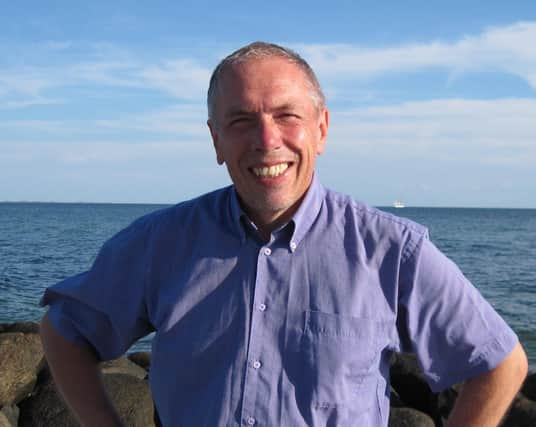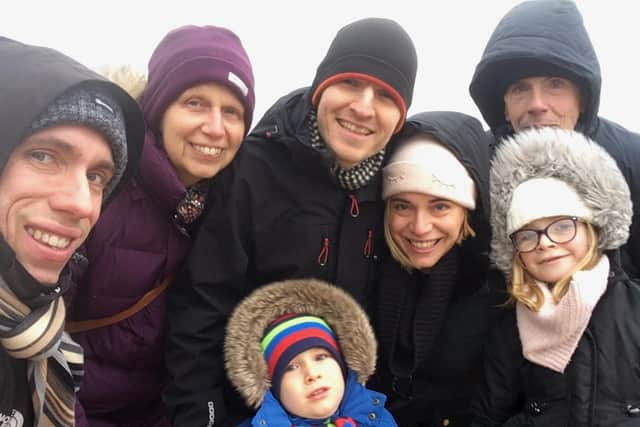Eminent professor died after delay to his treatment, inquest hears


Emeritus Professor Philip Lowe OBE died aged 69 in February 2020 from a perforated sigmoid colon following treatment for a twisted bowel for which he was transferred between Northumbria Specialist Emergency Care Hospital (NSECH) in Cramlington and North Tyneside General Hospital (NTGH).
An inquest has concluded that a mistaken diagnosis and missed opportunity for treatment directly contributed to the death of the rural economy expert and retired University of Newcastle professor.
Advertisement
Hide AdAdvertisement
Hide AdAt the inquest held at Morpeth Coroner’s Court, Prof Lowe’s family told Coroner Andrew Hetherington they believed the “hub and spoke” model of NHS care, under which Prof Lowe was moved between the two hospitals, had delayed treatment and contributed to his death.


Mr Hetherington said it was likely that earlier decompression of the sigmoid volvulus on February 16, 2020, would probably have prevented the perforation and death.
Prof Lowe, of Morpeth, had been diagnosed with Parkinson’s disease in 2010 but lived independently with his wife of 48 years.
On February 13, 2020, he was admitted to NSECH and diagnosed with a twist in his bowel, undergoing a sigmoidoscopy and decompression procedure to untwist the bowel the following day.
Advertisement
Hide AdAdvertisement
Hide AdHe was then transferred to NTGH to recover, a hospital where sigmoidoscopy facilities were not available if his bowel were to twist again.
However, the inquest heard that Prof Lowe’s notes revealed that, after the decompression, the diagnosis was erroneously changed from intestinal volvulus to a much less serious bowel issue called “pseudo obstruction”.
After Mrs Lowe voiced her concern that her husband’s abdomen was again very swollen, he was kept in NTGH for another night.
The following morning he was transferred back to NSECH but was not admitted to a ward until 7.30pm and the procedure postponed until the following morning.
Advertisement
Hide AdAdvertisement
Hide AdBy this stage, his breathing was shallow and his stomach was extremely swollen.
During the night the seriousness of his condition became clear and a second emergency sigmoidoscopy and decompression procedure at 3am proved to be too late – Prof Lowe had suffered a perforated bowel and died at 7.30am on February 17, with his wife at his bedside.
Northumbria Healthcare NHS Foundation Trust carried out a Serious Incident Investigation into Prof Lowe’s death, which found that the wrong diagnosis had been entered into Prof Lowe’s notes and had delayed Prof Lowe’s treatment when he was returned to NSECH.
The Trust accepted that the delay in treatment could have caused Prof Lowe’s death and concluded that there was strong evidence that his death was preventable.
Advertisement
Hide AdAdvertisement
Hide AdFollowing the inquest, Prof Lowe’s daughter, Sylvia Ninkovic said: “We believe that if our dad had not been transferred between Cramlington and North Tyneside hospitals then he would have received better care, the deterioration in his condition would have been clear to medical staff and the re-twisted bowel would have been spotted and treated.
"It’s devastating to think that our clever, caring dad and grandpa could still be with us today if it had not been for the miscommunication and confusion caused by the hub-and-spoke model of NHS care.
"What’s more, many of the same issues were highlighted months before dad’s death in the 2019 Care Quality Commission inspection of Northumbria Healthcare, where NSECH was found to be ‘requiring improvement’ in the areas of patient safety and urgent and emergency services.”
Leigh Day solicitor Rebecca Ridgeon, who represents the family, said: “As was clear from the Trust’s own investigation, there were a number of errors in Prof Lowe’s treatment which meant that the urgency of his condition was not appreciated until the very last minute — as the Coroner has recognised, the mistaken diagnosis and missed opportunity to intervene earlier played a critical role in the tragic outcome.
Advertisement
Hide AdAdvertisement
Hide Ad"I am pleased that the inquest allowed Prof Lowe’s family an opportunity to learn what steps the Trust have taken to prevent the same mistakes from being made again in the future.”
A spokesperson for Northumbria Healthcare NHS Foundation Trust said: “Our sincere condolences and thoughts go out to Professor Philip Lowe’s family and all those who knew him and we are truly sorry for his death.
“As the inquest heard Professor Lowe’s death was not as a result of the hub and spoke model of care. It was due to misdiagnosis and we accept that. The hub and spoke model, which is endorsed by extensive and published clinical research, brings many benefits to the way services are provided across North Tyneside and Northumberland.
"The positive outcomes of this model, including mortality rate, quality of care, patient experience and the ability to continue elective activity over the last year and a half are well established.
Advertisement
Hide AdAdvertisement
Hide Ad“The care that we provided Professor Lowe fell below the consistently high standard of care that we normally offer our patients.
"We have taken the learning from the serious investigation findings and have already implemented a number of measures to prevent this from happening again.”